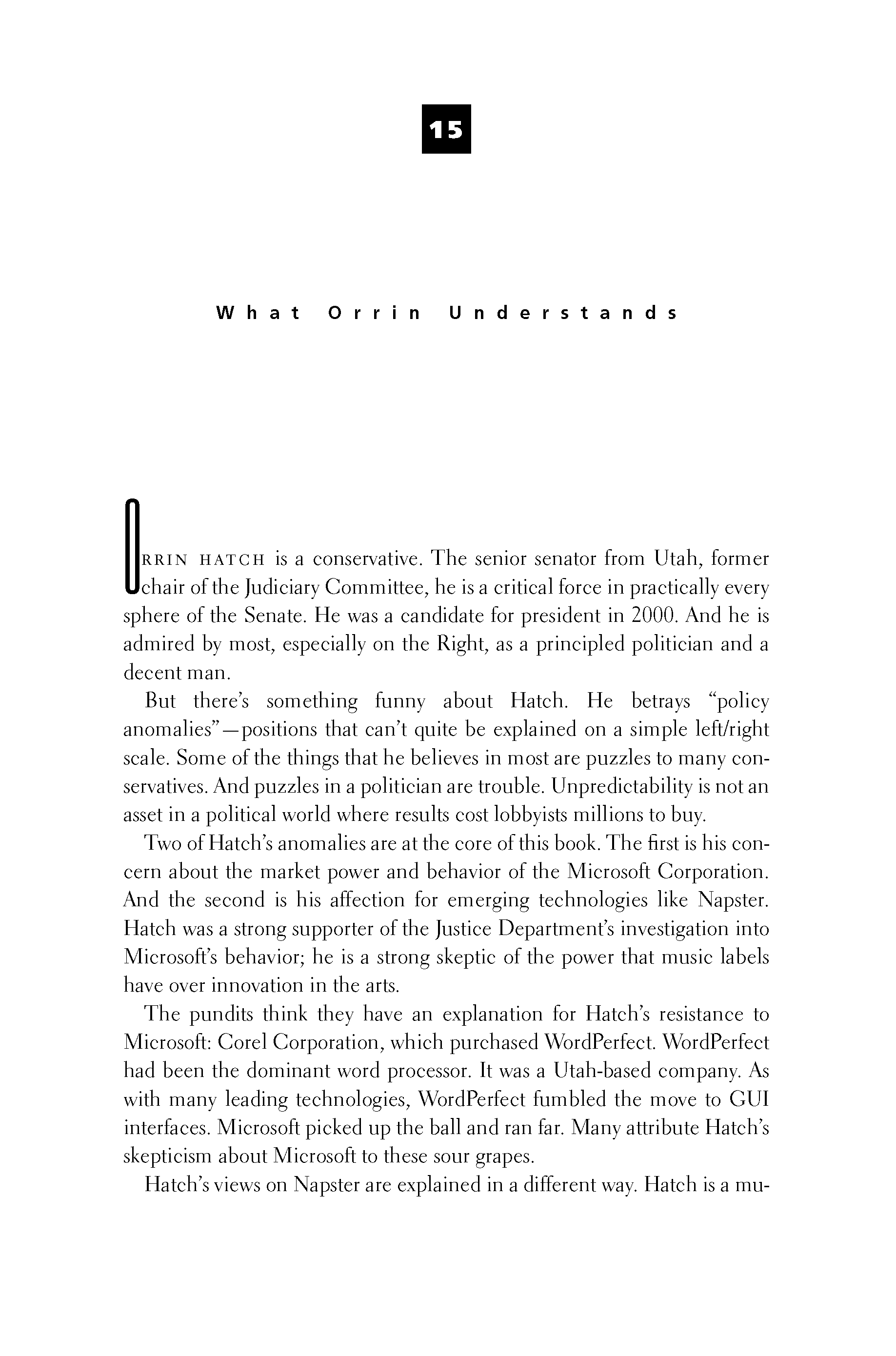 p261 _
-chap- _
toc-1 _
p262w _
toc-2 _
+chap+ _
p263
p261 _
-chap- _
toc-1 _
p262w _
toc-2 _
+chap+ _
p263
Orrin Hatch is a conservative. The senior senator from Utah, former
chair of the Judiciary Committee, he is a critical force in practically every
sphere of the Senate. He was a candidate for president in 2000. And he is
admired by most, especially on the Right, as a principled politician and a
decent man.
But there's something funny about Hatch. He betrays "policy
anomalies" -- positions that can't quite be explained on a simple left/right
scale. Some of the things that he believes in most are puzzles to many con-
servatives. And puzzles in a politician are trouble. Unpredictability is not an
asset in a political world where results cost lobbyists millions to buy.
Two of Hatch's anomalies are at the core of this book. The first is his con-
cern about the market power and behavior of the Microsoft Corporation.
And the second is his affection for emerging technologies like Napster.
Hatch was a strong supporter of the Justice Department's investigation into
Microsoft's behavior; he is a strong skeptic of the power that music labels
have over innovation in the arts.
The pundits think they have an explanation for Hatch's resistance to
Microsoft: Corel Corporation, which purchased WordPerfect. WordPerfect
had been the dominant word processor. It was a Utah-based company. As
with many leading technologies, WordPerfect fumbled the move to GUI
interfaces. Microsoft picked up the ball and ran far. Many attribute Hatch's
skepticism about Microsoft to these sour grapes.
Hatch's views on Napster are explained in a different way. Hatch is a mu-
[[262]]
p261 _
-chap- _
toc-1 _
p262w _
toc-2 _
+chap+ _
p263